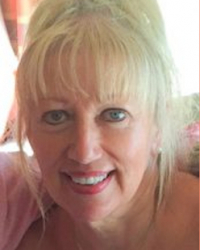Consider your personal boundaries
Where are your boundaries? Are they serving you well?

The egoistic mind approves of doing rather than a state of being. Having a busy full-on schedule, ruled by our to-do list can have a negative effect on our true ability, causing us stress. Does your to-do list give you a sense of importance? Or is it a distraction from the real things that are important things for you?
We are led to believe that if we are not fully engaged in ‘doing’, we are not going to be successful; we are not worthy of recognition. This form of thinking is endemic in our society and results in shame and guilt, which is predominantly from a basis of fear. Fear of not being fully engaged in something that society considers valuable.
Our emotional and personal boundaries are going to protect us and keep us from being over-engaged or distracted from our purpose. They are an internal barometer that tells us that we have stretched ourselves in either a negative or positive way.
By discerning between the two, we can easily know if we are working within our positive boundaries - those that have the potential to help us to grow and to extend our connectivity to people, ideas and opportunities. Alternatively, we may be being overly cautious and busy, seemingly doing a lot. However, if doing the activities seems difficult, the steps are not easily achieved.
This can be a sign that we have stepped over the area of self-protection into the egoic state. This is when we are becoming overly cautious and more attentive to what others might think.
The more we value things outside our control, the less control we have.
- Marcus Aurelius
Our self-perception, self-esteem and personal identity, might feel threatened if we are not fully engaged and busy doing something that society accepts as being valuable. We need to avoid indulging in our thought patterns that create this thinking. Our thinking either determines our connection to our heart centre, which is authentic with our flow. It also has our mission to be fulfilled and content as part of our purpose and reason for engaging and doing.
To be fully engaged in the moment is the only reality that actually exists. When our perception is ego-based, we can easily recognise our unease and discomfort brought about by engaging our thought patterns away from our heart centre and engaging with our thinking and indulging our egoic nature.
The opposite is true when we are in a position of flow. We know that we are meant to be there, we feel present and connected, inspired in harmony with everyone and everything in our life and lifestyle.
Our positive indications are when boundaries feel flexible with the flow, there is no fear, it’s as though a natural current of energy is moving with us. We have no concern that this is the right direction, just an inner knowing, a sense of peace that we are in the right place at the right time. This is fertile soil for our development, personal growth and genuine enjoyment.

Both areas are part of our being and when the egoic state becomes more prominent, it is looking to be seen and heard.
To avoid this part of us by being busy will only increase the feeling of unease. It’s part of you, it wants your recognition and, when you recognise it without becoming engaged in its negativity, the stressful edge will soften.
We can just smile, observe the thought and thank that part of us that has brought the thought to our attention. As you do this, just practice sending your breath into the space where you feel the thought. This is the reassurance and intention of calming, as a parent speaking to a child.
Engaging with our breathing brings us back into the moment, it refocuses our attention onto the real things, it brings back balance, and calm we can return back to our natural flow.
Our concentration is fully engaged, and we have the feeling that we are fully engaged and secure.
How to re-evaluate your boundaries
If you get a strong sense of anxiety over your doing activities, it is time to re-evaluate them, revise and reframe them.
- Protect your time say no, to the distractions that take you off course.
- See your to-do list is merely a guide to your day.
- Take a break a completely different activity, if you are seated in an office take a walk or do something physical.
- Listen to your heart space as opposed to your thinking mind-to do this give yourself some space and time to ask the question, how can we work together more effectively?
- Breathe with intention, use simple meditative breathing exercise as a guide.
Ask yourself the following questions:
- What are my thoughts telling me?
- Do I engage with my thoughts a lot? (we have a choice and we can easily choose not to engage with our thoughts)
- Do my thoughts lead me to catastrophise?
- Do I say yes to please other people?
- Am I distracting myself to avoid certain things by persuading myself that the distractions are more important?

Find a coach dealing with Personal development
All coaches are verified professionals



